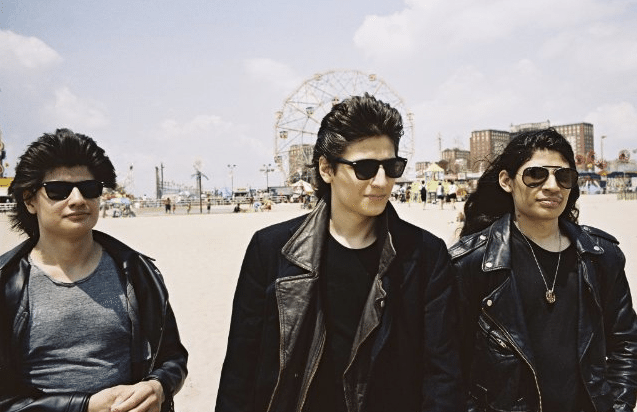by Richard von Busack
Director Crystal Moselle was on the street in Manhattan one day when she encountered the Angulo siblings, a group of long-haired, teenage boys dressed like Reservoir Dogs characters, in black suits and sunglasses.
Over the course of four and a half years, Moselle got to know the boys and their mother, the gentle Suzanne, a reticent woman from Michigan who was homeschooling her sons out of the apartment building where they lived. Moselle learned of the Angulo’s bizarre history. Their Peruvian father, Oscar, is an ex–Hare Krishna who gave his seven sons names from the Hindu religion. Oscar refused to let them leave the house, sometimes for a year at a time.
One question the film doesn’t answer is why a religious maniac would allow movies into his home, when the power of cinema to mold and change people should be apparent even to the most blinkered New Ager. The boys got their views of the world watching Tarantino, the Halloween series and Christopher Nolan. Besotted, these captives recreated the films as best they could with cardboard sets and duct-taped costumes.
Moselle doesn’t identify the boys every time, and since they’re born a year or so apart and have similar mannerisms, we do get a sense of them being a pack—a pack of playful puppies. Any actual violence between the cooped-up teens is kept offscreen, as is the commented-upon violence between Oscar and Suzanne. It’s clear that discretion was the price of Moselle’s access.
The director’s camera feasts on the unselfconscious male beauty of these adolescents. The film has great goofy charm during a trip to Coney Island. But there’s an element of manipulation in the way Moselle frames this family history—in essence, a story of appalling child abuse—as a tale of success, complete with a happy ending down on the farm.






